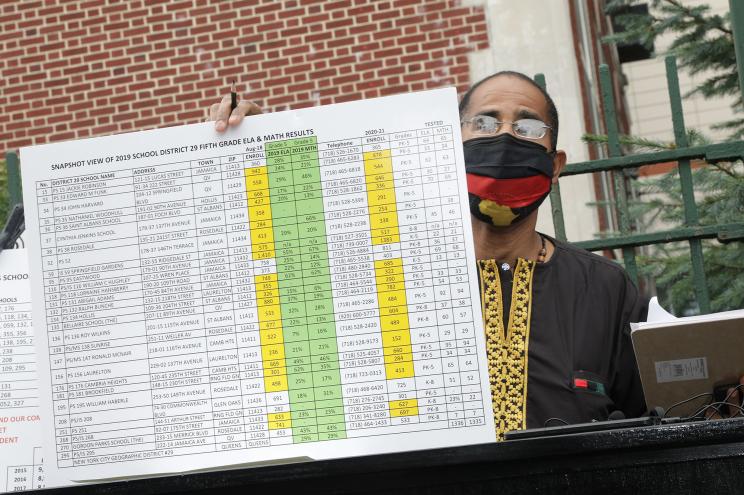In what could be the straw that breaks the camel’s back, middle-class black families in Queens are mobilizing against the city Department of Education’s routine acceptance of rotten public schools.
As The Post’s Georgett Roberts and Selim Algar report, these parents in District 29 aren’t taking “We need more resources” as an excuse.
“A lot of people knew that it was bad,” explains local activist Michael Duncan, “but they didn’t know it was this bad.”
How bad? District-wide, just 28 percent of black students in grades 3-8 passed their 2019 state math exams and just 37 percent passed English. At some schools, almost no one passed: A whopping 94 percent of fifth-graders at PS 134 in Hollis, for example, flunked math; 83 percent bombed English.
No wonder the district saw a 13 percent drop in enrollment over the past four years. These are the children, after all, of middle-class black homeowners, “successful people,” Duncan points out. “The results in our schools are not reflective of the community. Something is wrong here.”
Money’s not the problem. PS 134 spent $27,000 per student in 2019, much more than double the national average (New York state spends the most per pupil in the country). Catholic schools and small private schools in the area spend far less, with far better results.
No, the problem, Duncan and others in the new Students Improvement Association say, is that the DOE’s chief priority is making the adults who run the schools happy, rather than ensuring kids get the best education.
Failed superintendents, principals and teachers aren’t fired; they’re dumped on majority-minority districts. Meanwhile, the de Blasio-era rollback of discipline has also fueled classroom disorder, as Queens state Sen. Leroy Comrie has warned.
District 29 isn’t unique: Gotham spent nearly $27,000 for every public school student across the city in 2018 — with dismal results. But the teachers union and other special interests do just fine.
With the pandemic further exposing the DOE’s priorities of serving the adults, not the kids, the rebellion in District 29 could force a sea change: If enough parents refuse to accept the system’s indifference to learning, a change will have to come.
